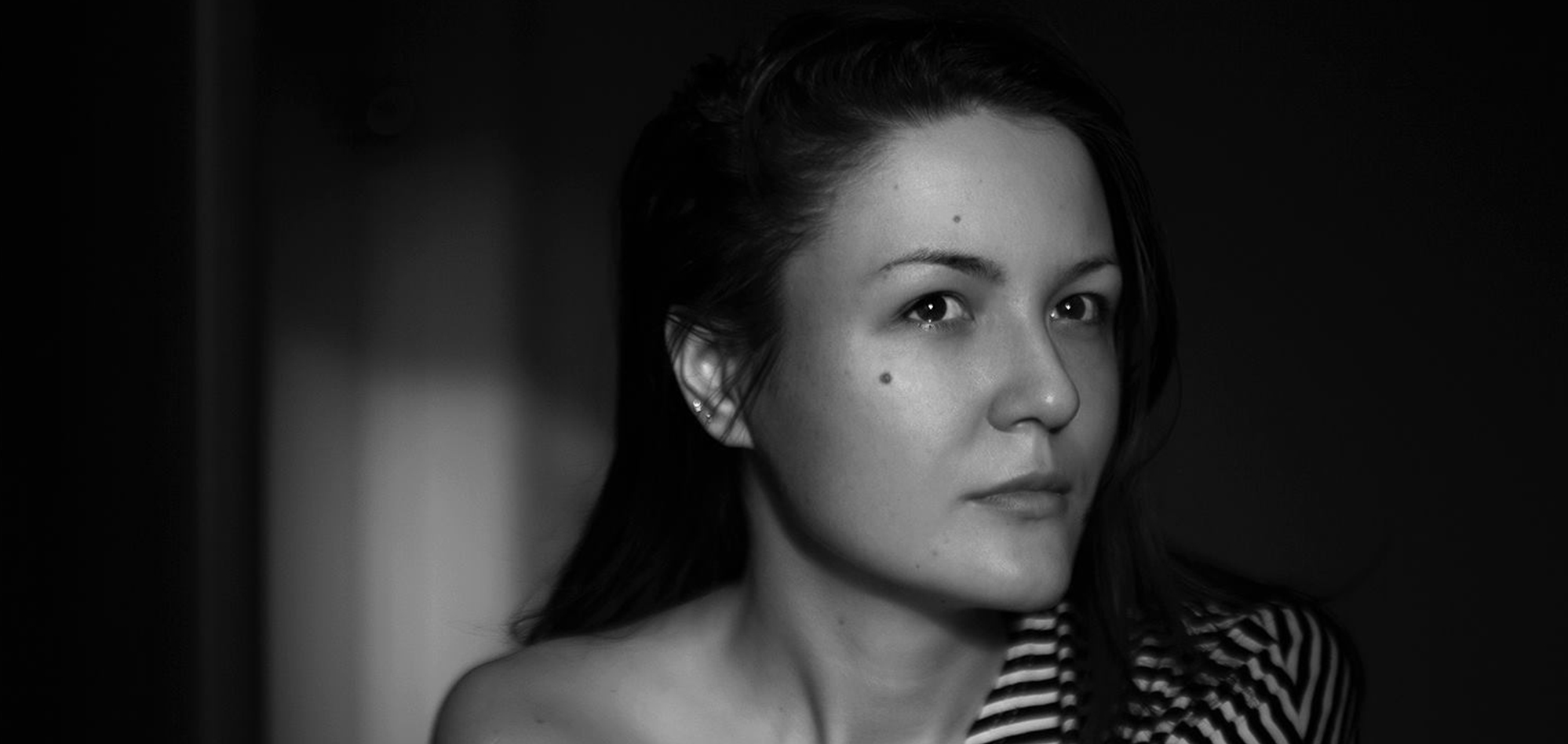Charlotte Daniel is an independent writer and director from Scotland. She has self-produced two short films, “Carmen,” a seven-minute self-funded short in the vein of “Black Mirror” and “Eyes Down,” and LGBT+ drama which follows a trans woman taking a journey on a bus. “Eyes Down” recently won the Audience Award and Most Creative/Original at the 2020 Scottish Short Film Festival. She studied Film Production at the University of Westminster, graduating in 2012. She then began her career in the Location Department in the UK Film and Television Production Industry.
Within the framework of this year’s 16 DAYS 16 FILMS initiative created by Modern Films and the Kering Foundation, a short film competition that platforms female filmmakers and their films, which explore, emote, and educate on forms of violence against women, Tara Karajica talks to Charlotte Daniel about her short film, “Eyes Down,” as well as her thoughts on the short form, women in film today and what she is up to next.
How did you get into filmmaking and what inspires you to make films?
Charlotte Daniel: I always watched films and wrote stories as a child. It’s a love that I inherited from my Dad. He encouraged me and showed me that making films was possible; you didn’t need to be from Hollywood, you could be from Scotland. You just need an idea. Making films is how I process the world around me. I always have stories or characters in my head; they take over my life as soon as they burst out in my mind and then I have put them out into the world.
Can you talk about your short film Eyes Down?
C.D.: Eyes Down began as a short story that I wrote after travelling on the tube one day. It wasn’t due to a particular incident. I guess I began to imagine how it would feel to be packed into to such a tight space and feel subconscious, and then all of a sudden Mary was there. I didn’t do anything with the story after that for a while, I just always loved it. After making my first short, I was thinking of other ideas that I could shoot on a small budget with a small crew and my partner suggested adapting Eyes Down. I started to realize that the film could be a way for me to be proactive in my trans allyship and to create opportunities for a trans woman to tell an authentic and positive story, one which could really contribute to positive trans representation.
How do you see the short form today?
C.D.: Short films are incredible. I love watching them and making them. It takes real skill and understanding of craft to make an affecting and memorable short film, something which I am still striving for. I have seen some incredible short films in my time, which I still think about today. I hope that more people realize the untapped gems of short form filmmaking and watch more of them. Making short films is the best way to discover and develop yourself as a filmmaker, to learn and make mistakes.
What is your opinion on the situation of women in film today?
C.D.: I believe it is getting better, but there is still a long way to go. I work in the industry as a day job – I have since 2013 – and it has only been in the last three years that I have started to work for more female Heads of Department, including Directors and D.o.Ps. It strikes me every time because it has been so rare and I realize suddenly how important it is to see people who look like you in these leadership roles because it makes it feel all the more possible. There are definitely some inherently negative patriarchal attitudes still prevalent in our industry so it is important for women to raise each other up and help to create opportunities for each other and to look at those who are more marginalized than us and work even harder to create more seats at the table. The more conversation and discourse we have around this, the more the younger generation will strive to create a more equal playing field. I also believe that now we are enjoying more and more film and television by womxn and we are realizing how wonderful it is to have different these voices in our society.
Who is your favorite female filmmaker and what is your favorite film by a female filmmaker?
C.D.: My favorite filmmaker is Céline Sciamma. Each film she has produced has been so perfectly constructed and so masterful. She is completely versatile, from making incredibly poignant independent films set in contemporary France like Girlhood to then creating one of the most beautifully composed and heart-breaking films of last year, Portrait of a Lady on Fire, she has been able to create something new each time, but with a signature visually arresting style and emotionally enveloping storytelling.
What are your next projects?
C.D.: I am in early pre-production for my next short film, Cara. We are looking to try and secure some funding for this to hopefully shoot in summer next year. I want to take the next step in terms of production value. All of my shorts so far have been produced from a micro budget and shot in one day! I am also developing a documentary project which I am very excited about.
This interview was conducted within the framework of the 2020 16 DAYS 16 FILMS initiative created by the Kering Foundation and Modern Films.










